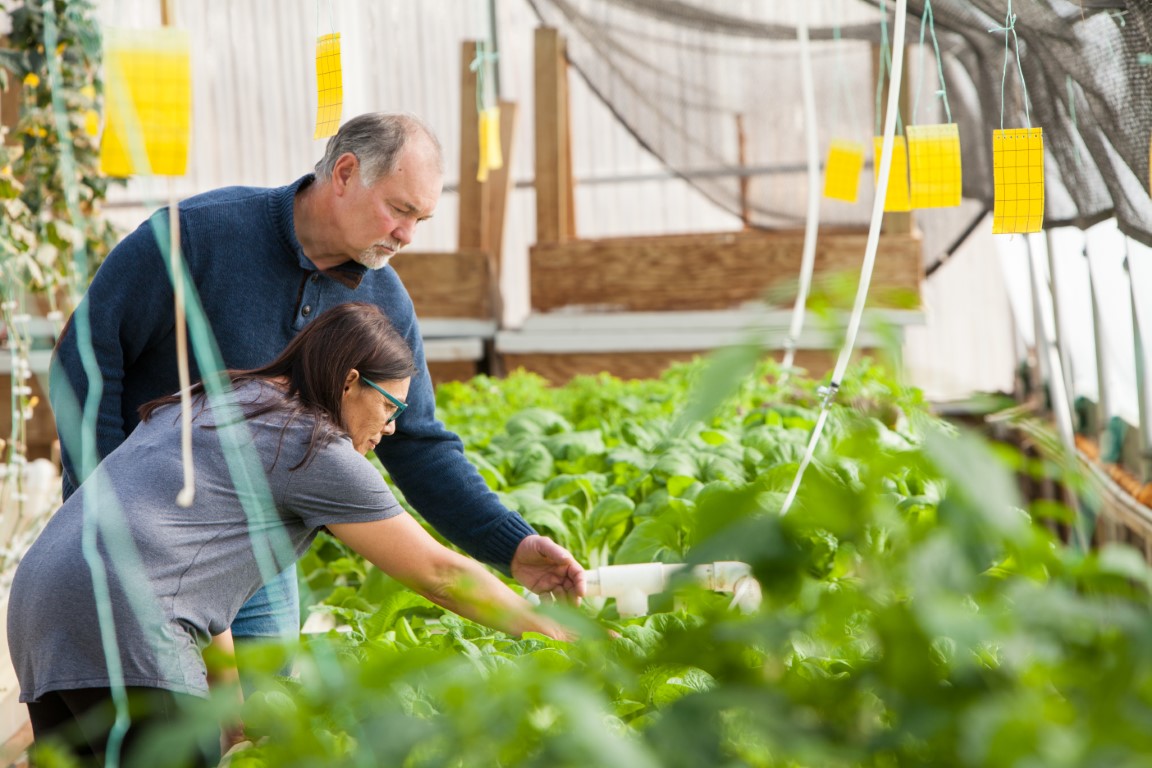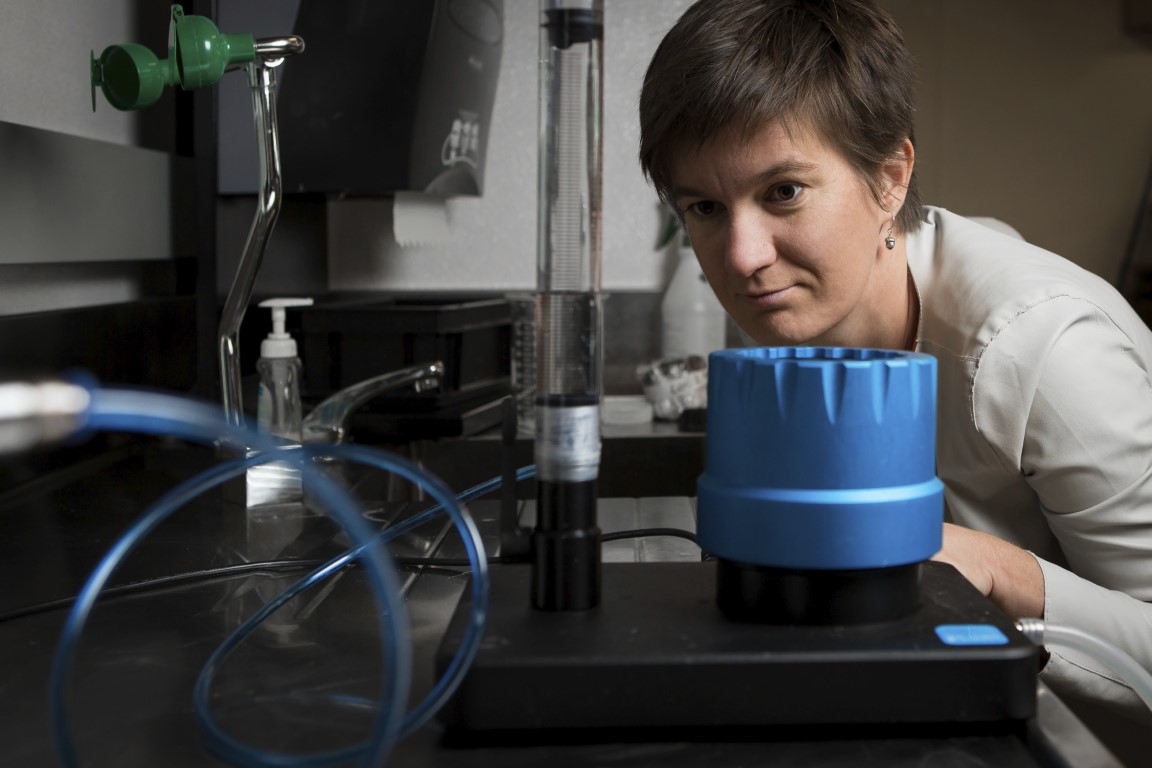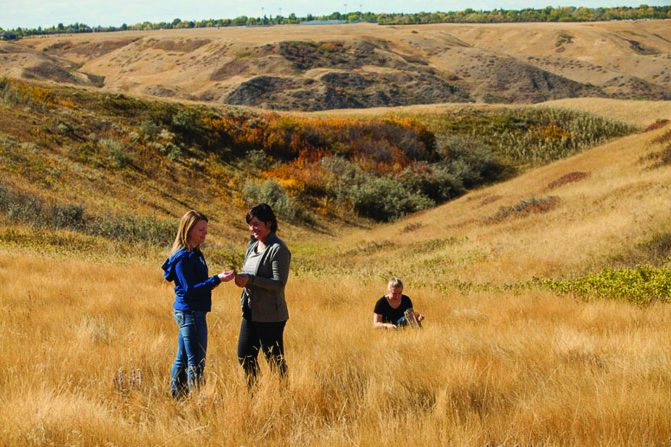 Lethbridge College will receive nearly $1.15 million in federal research funding, the Honourable Kirsty Duncan, Minister of Science and Sport, announced this morning in Ontario.
Lethbridge College will receive nearly $1.15 million in federal research funding, the Honourable Kirsty Duncan, Minister of Science and Sport, announced this morning in Ontario.
The college will receive $1 million towards its Centre for Sustainable Food Production through the Canada Foundation for Innovation’s (CFI) College-Industry Innovation Fund (CIIF). An additional $147,023 of funding will provide two Lethbridge College researchers with equipment vital to their work through the Natural Sciences and Engineering Research Council of Canada (NSERC) College and Community Innovation (CCI) fund.
“These grants are an important contribution to Lethbridge College’s applied research operations,” says Dr. Kenny Corscadden, Lethbridge College Associate Vice President – Research. “They will allow us to increase our inventory of specialized equipment available to our researchers, build capacity in our applied research department, involve more students and industry partners in research projects, and take a large step towards the creation of a state-of-the-art facility on our campus. This is an important day for moving Lethbridge College’s applied research forward.”

The CFI grant will go towards the creation of a new greenhouse on the Lethbridge College campus that will work in conjunction with the existing Aquaculture Centre of Excellence. Additional funding and announcements about the new Centre for Sustainable Food Production and research greenhouse are expected in the coming months.
“The funding will provide the infrastructure and equipment to allow us to engage in research at the commercial scale,” says John Derksen, chair of the Aquaculture Centre of Excellence. “Greenhouses will allow Lethbridge College to take the bench top – facility trials in aquaponics, bioreactor technology and integrated plant production systems – to a scaled up version to see what the results may look like on a commercial level. This is the last step in proving any research before the adoption of new technology by industry, and now we'll have it. This grant award will truly convert the Aquaculture Centre of Excellence into a unique facility, advancing its research to be a world leader and developer.”
The NSERC grants will be used to purchase equipment for the college’s research work in precision irrigation and in antibiotic identification from native plants. The awards come from the Applied Research Tools and Instruments (ARTI) grants, which provide funding for equipment used in the applied research process.

Dr. Willemijn Appels, the Mueller Applied Research Chair in Irrigation Science, is undertaking research projects in the precision irrigation field, where new technology and management strategies are combined to grow “more crop per drop.” A grant of nearly $75,000 will allow for the purchase of an Eddy Covariance system that is used to measure the amount of moisture leaving plants as water vapour, complementing the more common method of estimating that amount of moisture from weather conditions and crop characteristics.
“Estimated and actual plant water use may vary, based on water availability and crop varieties,” says Dr. Appels. “Being able to do proper ground-truthing with this device will really help evaluate some assumptions that we make in our field studies.”
Dr. Sophie Kernéis, a senior research scientist specializing in microbiology, is leading the Antibiotic Alberta Plant Project (AAPP), which identifies plants native to Alberta that show antibacterial activities. The group then works to isolate antibiotic molecules, potentially leading to the discovery of new antibiotics for medical and livestock use.
A grant of more than $72,000 will fund the purchase of three pieces of equipment key to this research:
- a rotary evaporator to remove the solvents used in the extraction,
- a high pressure liquid chromatography (HPLC) system to permit a first analysis of the active extracts and to compare the active extracts with the goal to find unique molecules,
- and, a second microplate spectrophotometer for the department that is essential to conduct antibacterial screening.

The increased capacity will place southern Alberta on the World Health Organization’s map of antibiotic partners.
“We are very fortunate to receive funding at this critical stage in our research,” says Dr. Kernéis “We are poised to expand the quality and efficiency of our research and training at Lethbridge College. There is an urgent need for new antibiotics and these three scientific instruments – especially an HPLC, which detects chemicals – will help us and our agricultural network discover new natural antibiotics from Alberta plants. I am excited about the opportunities that lie ahead.”
These are Lethbridge College’s first ARTI grants, as the college continues to expand its applied research department.
A total of $73 million worth of NSERC funding to 90 colleges, cégeps and polytechnics, and $12 million worth of CFI funding to 17 colleges, cégeps and polytechnics across the country was announced on Thursday morning.
Lethbridge College’s Centre for Applied Research, Innovation and Entrepreneurship is a catalyst for economic growth, sustainability and social development in the region. It brings together researchers, community organizations and students to collaborate on projects that use new or existing knowledge to solve real-world challenges with immediate practical applications. Lethbridge College was named one of Canada’s top 50 research colleges in 2018.
Partner quotes:
“Our government is committed to returning science and research to their rightful place. We’re investing in students and small- to medium-sized businesses so they can work together on a diverse range of research projects to boost economic development and create jobs across the country. With these projects, colleges, cégeps and polytechnics will be making a real difference in the lives of Canadians in their own communities.”
– The Honourable Kirsty Duncan, Minister of Science and Sport
“NSERC values the tremendous contributions of Canada’s colleges in the research and innovation ecosystem. Today’s investment will enhance our country’s world-class research capacity, help businesses innovate to create growth, and train our next generation of researchers and entrepreneurs.”
– Dr. Marc Fortin, Vice-President, Research Partnerships, Natural Sciences and Engineering Research Council of Canada
“The power of research is exemplified when it is applied to tackle real-world problems. Whether addressing the development of novel agri-food products or expanding the frontiers of aerospace and manufacturing technologies, researchers at colleges and polytechniques are well equipped to partner with industry to help boost Canadian innovation.”
– Roseann O’Reilly Runte, President and CEO, Canada Foundation for Innovation